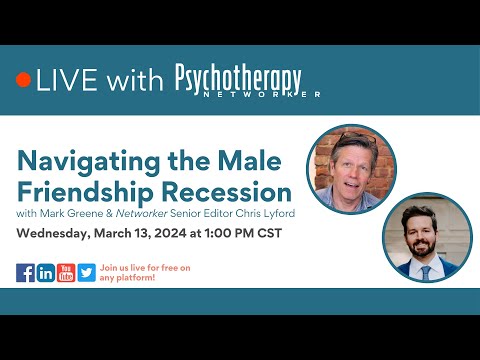I don’t want to be here. I don’t want to be in therapy. I don’t want to be in this marriage.
This was how Ann started the therapy session with her husband, Matthew.
Ann and Matt had been married nearly 30 years, but their union was coming unglued. Ann had already talked to a lawyer. She was ready to walk, but she came to therapy because Matt asked her to. He tells me he’d do anything to fix his broken marriage.
So, I turn my attention to Ann.
“What’s he done?” I ask.
“Pardon?” she says.
“What’s he done to turn you off so?”
“Well,” Ann tells me, “He yells. He gets up inches from your face, barely inches, with his own face all screwed up and red. You feel like he’s going to deck you, though he never would, of course. Since the girls were tiny little things, babies, they’ve been afraid of him.
“That wasn’t all the time, by any means, and when he wasn’t in a rage, he was a lovely guy. But this… this…”
She trails off, unwilling to say more.
Hearing Ann’s story, what becomes clear is that Matt, after 20 some years as a husband and a dozen plus as a father, is about to get fired by his entire family.
I look at Matt. His gaze on clasped hands, knees spread wide, he looks utterly dejected—but he’s not out of steam. As I watch, he does what many of the men who come to my office do: he argues.
Sure, his temper is real, he admits, but it’s not all that bad or that often; he’s never ever laid a hand … and so on.
Faced with such a typical situation, what do I do?
Here are the first steps I take when working with difficult men…
If the woman is about to walk, she gets my attention. Why? If my goal is to do what I can to save their marriage, then she’s my customer. If he was the one who wanted to walk, or if it was mutual, that would be different. But while there are symmetrical couples, where both partners are more or less alike in their unhappiness, there are a lot more women out there unhappy with their guys than the other way around.
I pay as much attention to issues of grandiosity in men as I do issues of shame. Why? It isn’t Matt’s shame that’s threatening to unglue this family; it’s his rage, his entitlement to control and attack. The couples I see have generally been to one, two—so far, the record is eight—therapists, and not one of them has confronted the man’s grandiosity. Trauma? Of course! Shame? Absolutely! But neither of these is what’s brought Ann to the edge. When faced with evidence of a man’s grandiosity, we therapists are trained to go under it, to the “underlying causes” of shame and trauma. With my Relational Life Therapy (RLT) approach, therapists don’t go under, around, or over a man’s grandiosity—we steer into it.
Grandiosity impairs judgment. It blunts empathy and leads us to underestimate negative consequences. Virtually all grandiose men minimize and rationalize their behavior. “It isn’t that bad” coupled with “Well, but you have to understand …” To cut through these distortions and get through to these guys, an RLT therapist goes for details. We unearth specific examples, behaviors, and actual words, and use them like a can opener to confront the hard shell of denial. “Did you, or did you not, actually say that?”
Once I determine that I’m working with a difficult, grandiose man, my first concern is how to engage him in therapy, how to get buy-in. To do this, I need to help him begin to face the thus far denied consequences of his behaviors, which most often include the spouse’s dissatisfaction, but also regularly include the threat of doing damage to the man’s children.
With Matt, who got close to his kids and yelled in their faces, I ask him a series of questions.
“So, Matt,” I begin, turning toward him, “Who was the angry one in your family growing up? Where did you learn to scream at someone like that?”
After some prodding, I find that Matt underwent abuse from his father starting at a very young age. He knows what this feels like. He can understand the damage it did to his own relationship with his father. And therefore, he can also begin to understand the damage his rage has inflicted on his relationship with his children.
I ask him “what kind of relationship do you want with your kids?”
“Well, at the moment I have—”
“Exactly,” I say. “And do you know why?”
He says nothing. I lean forward and catch his eye.
“Because you have a lot to make up for, my friend,” I tell him as gently as I can.
He looks down at the floor, the fight knocked out of him. “You of all people,” I add, “know exactly what it’s like to grow up with a raging father. Is that what you want for your kids?”
“It’s too late,” he says, deflated.
“No, it isn’t, Matt. There’s still time for you to change. You can still set things right.”
After a long, fraught silence, Matt looks up from the floor. “How?” he asks me.
This is the difference of my RLT approach. I’m direct about their behaviors and what needs to change. But I also offer hope. I build trust, so these clients open up about their emotional pain.
And it works!
If you’re ready to learn even more about my transformative approach, I’m now offering this in-depth Master Class so that you can experience the steps I take, in powerful, real-life therapy sessions…
… to help clients work through their deep emotional issues of shame, attachment wounds, and trauma that are damaging their relationships and creating patterns of generational abuse.
Terry Real
Terry Real, LICSW, is an internationally recognized couples therapist, speaker, author, and founder of the Relational Life Institute (RLI). His latest bestseller is Us: How to Get Past You and Me to Build a More Loving Relationship. He’s also the author of I Don’t Want to Talk About It: Overcoming the Secret Legacy of Male Depression (Scribner), the straight-talking How Can I Get Through to You? Reconnecting Men and Women, and The New Rules of Marriage: What You Need to Make Love Work.














